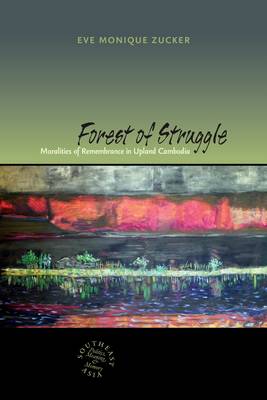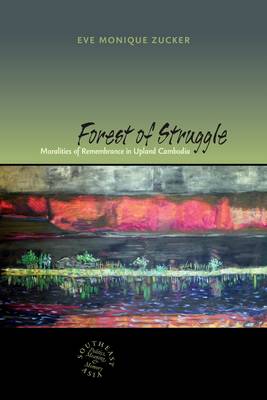
- Retrait gratuit dans votre magasin Club
- 7.000.000 titres dans notre catalogue
- Payer en toute sécurité
- Toujours un magasin près de chez vous
- Retrait gratuit dans votre magasin Club
- 7.000.0000 titres dans notre catalogue
- Payer en toute sécurité
- Toujours un magasin près de chez vous
Description
In a village community in the highlands of Cambodia's Southwest, people struggle to rebuild their lives after nearly thirty years of war and genocide. Recovery is a tenuous process as villagers attempt to shape a future while contending with the terrible rupture of the Pol Pot era. Forest of Struggle tracks the fragile progress of restoring the bonds of community in O'Thmaa and its environs, the site of a Khmer Rouge base and battlefield for nearly three decades between 1970 and 1998.
Anthropologist Eve Zucker's ethnographic fieldwork (2001-2003, 2010) uncovers the experiences of the people of O'Thmaa in the early days of the revolution, when some villagers turned on each other with lethal results. She examines memories of violence and considers the means by which relatedness and moral order are re-established, comparing O'Thmaa with villages in a neighboring commune that suffered similar but not identical trauma. Zucker argues that those differing experiences shape present ways of healing and making the future. Events had a devastating effect on the social and moral order at the time and continue to impair the remaking of sociality and civil society today, impacting villagers' responses to changes in recent years. More positively, Zucker persuasively illustrates how Cambodians employ indigenous means to reconcile their painful memories of loss and devastation. This point is noteworthy given current debates on recovery surrounding the Khmer Rouge Tribunal. Forest of Struggle offers a compelling case study that is relevant to anyone interested in post-conflict recovery, social memory, the anthropology of morality and violence, and Cambodia studies.Spécifications
Parties prenantes
- Auteur(s) :
- Editeur:
Contenu
- Nombre de pages :
- 256
- Langue:
- Anglais
- Collection :
- Tome:
- n° 7
Caractéristiques
- EAN:
- 9780824836115
- Date de parution :
- 30-04-13
- Format:
- Livre relié
- Format numérique:
- Genaaid
- Dimensions :
- 152 mm x 229 mm
- Poids :
- 508 g

Les avis
Nous publions uniquement les avis qui respectent les conditions requises. Consultez nos conditions pour les avis.






